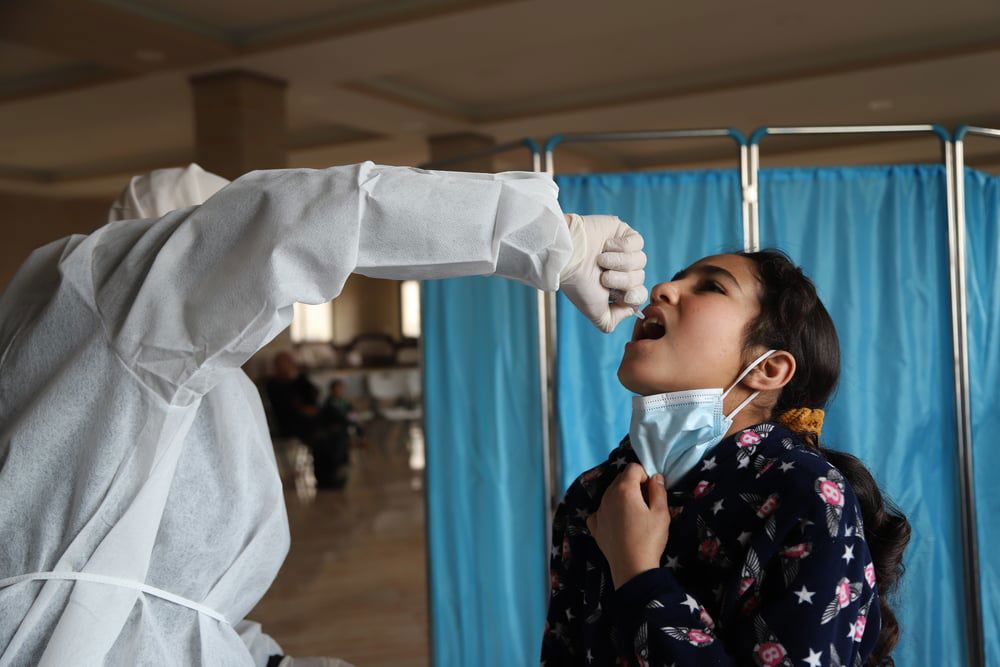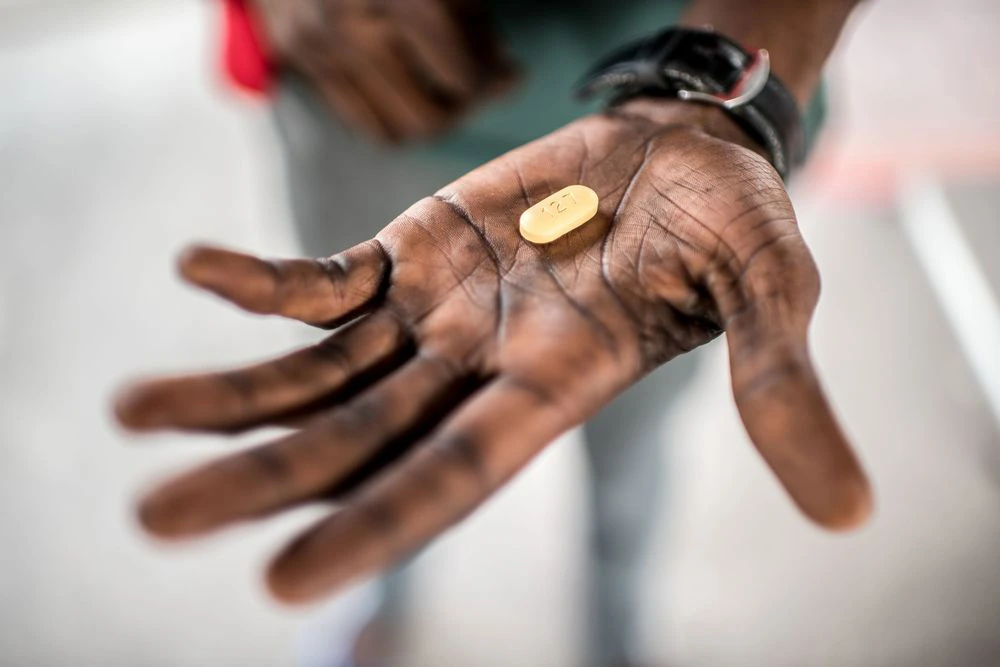With World Immunization Week under the theme ‘The Big Catch-Up’ this year, Médecins Sans Frontières called on Gavi, The Vaccine Alliance, and its donors, to make sure that all children at least up to age five who have missed some of their routine childhood vaccines, or have not received any at all—‘zero-dose’ children— are given the opportunity to catch up on their vaccines.
Gavi’s current funding mechanism does not adequately cover the catch-up vaccination for zero-dose children. Changing the policy to vaccinate older children would be particularly critical in countries in humanitarian crisis, where there are large pockets of zero-dose children. Gavi must also take urgent steps to waive requirements for countries with fragile health systems or those in humanitarian crisis to co-finance the additional vaccines, in order to remove any barriers to broadening vaccine coverage for unprotected children.
"The double-whammy of humanitarian crises and the pandemic has left a growing number of children in many countries where we work at a high risk of contracting life-threatening diseases like measles, diphtheria or pneumonia that could be prevented by vaccines,” said Miriam Alía Prieto, Vaccination and Outbreak Response Advisor for MSF. “Expanding the age range for vaccinating children to at least five years is crucial for those who have missed their scheduled vaccines, allowing them to catch up and gain protection against these potentially fatal diseases. Gavi must take immediate action and provide vaccines up to at least five years of age in the countries that wish to do so, to protect millions of vulnerable children whose lives are at stake."
Countries with a greater proportion of unvaccinated children are those with weak public immunisation systems and low vaccination coverage, including areas of humanitarian crisis and conflict where people live in close quarters, such as refugee camps. Children in these settings lack access to basic medical and other services and are more prone to dying due to preventable but life-threatening diseases.
For over five decades, MSF has been vaccinating children either as part of routine vaccination, or in response to outbreaks of disease in some of the world’s most challenging humanitarian contexts. In war-torn Syria, for example, MSF administered over 118,000 vaccine doses to children up to the age of five in 2016. In 2019, MSF teams vaccinated a large group of children who had not received a single vaccine dose in two years, against nine vaccine preventable diseases in Mingala, a remote area in the Central African Republic controlled by armed groups that prevented the entry of any kind of aid or medical humanitarian assistance for more than two years. MSF vaccinated over 2.5 million children up to age five as part of routine vaccination in its various projects around the world in 2021.
Between 2010-2019, while the number of zero-dose children reduced globally, there was no progress in crisis-hit countries. Further, there was historic backsliding on childhood immunisation, due in part to the COVID-19 pandemic, resulting in a drop in global vaccination coverage from 86% in 2019 to 81% in 2021. Between 2019- 2021, 67 million children missed out on routine vaccination, which includes 48 million zero-dose children who did not even receive a single dose of core vaccines including diphtheria-tetanus-pertussis (DTP).
Gavi’s Fragility, Emergencies and Displaced populations policy aims to reach zero-dose and under-immunised children by offering more flexible support to countries in need. Gavi has also launched the Zero-Dose Immunisation Programme to get vaccines to zero-dose children in some of the world’s toughest regions across the Sahel region and the Horn of Africa. However, Gavi has not been clear publicly about the age groups that will be covered under these initiatives and the financial support model that will be offered to countries.
“Despite the progress made in expanding global vaccination coverage, nearly 11 million of the un- and under-vaccinated infants live in fragile or humanitarian settings, including countries affected by conflict, and remain the most vulnerable to disease outbreaks,” said Dr. Sharmila Shetty, Vaccines Medical Advisor for MSF’s Access Campaign. “As countries in humanitarian crisis are already struggling financially to implement routine immunisation programmes, we strongly urge Gavi to waive the co-financing requirement for countries for this catch-up expansion, in order to ensure the biggest chance of success. We cannot let any child suffer or lose their life simply because they are based far from the reach of available vaccines.”



